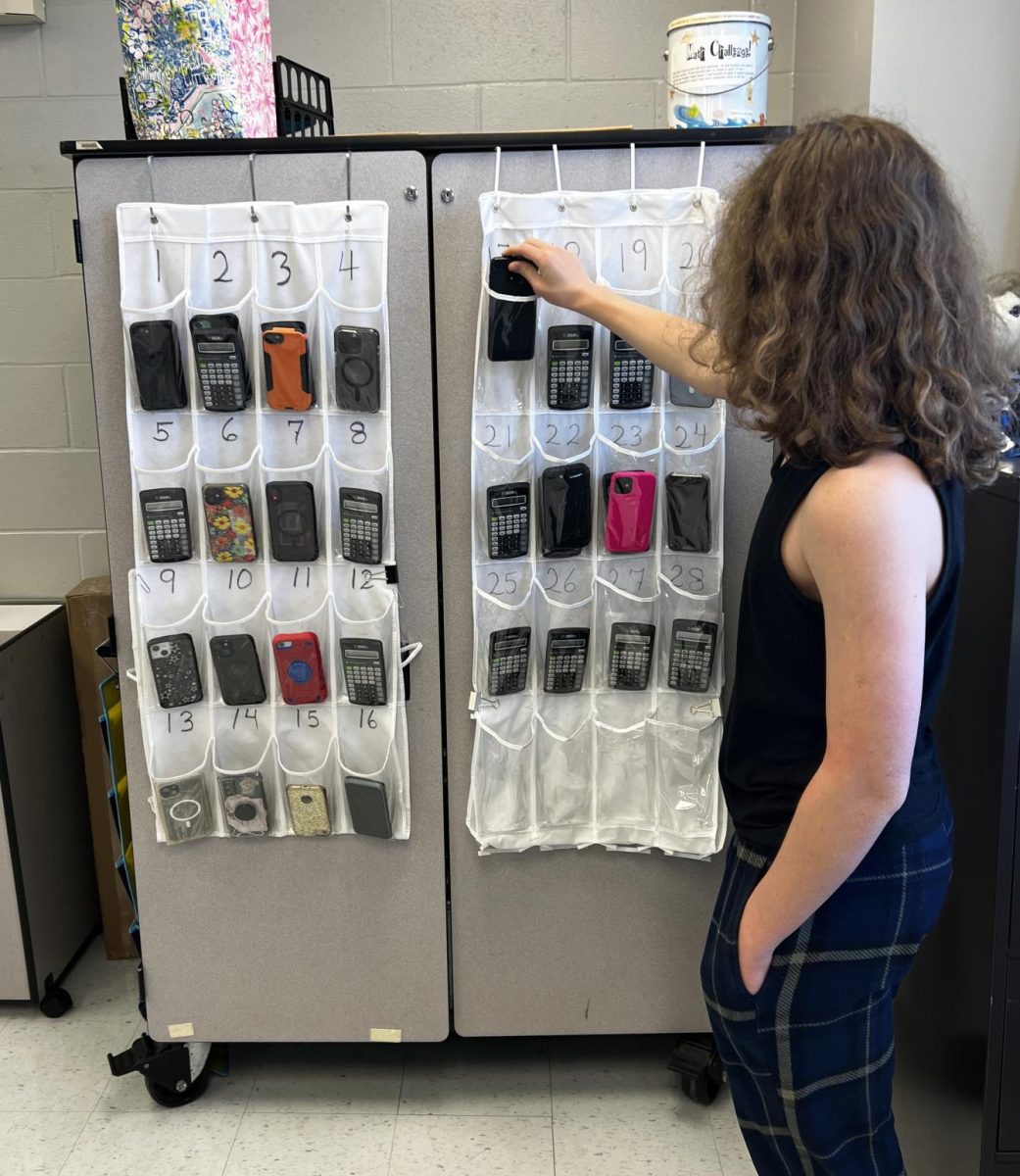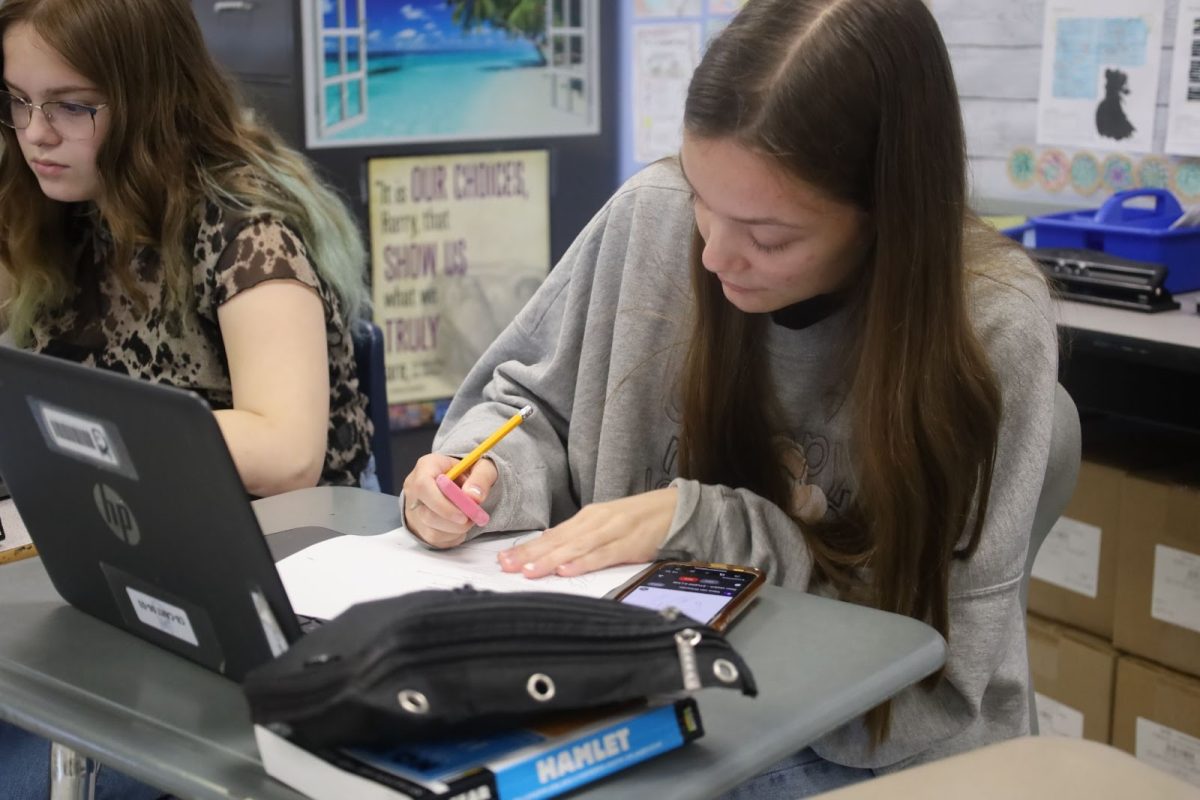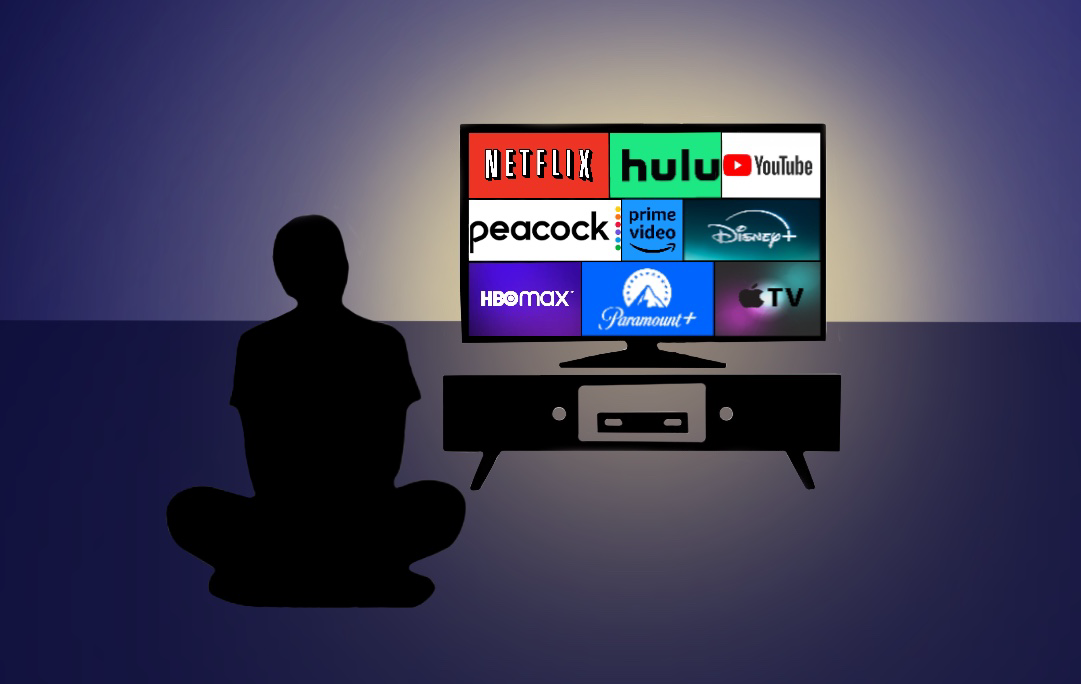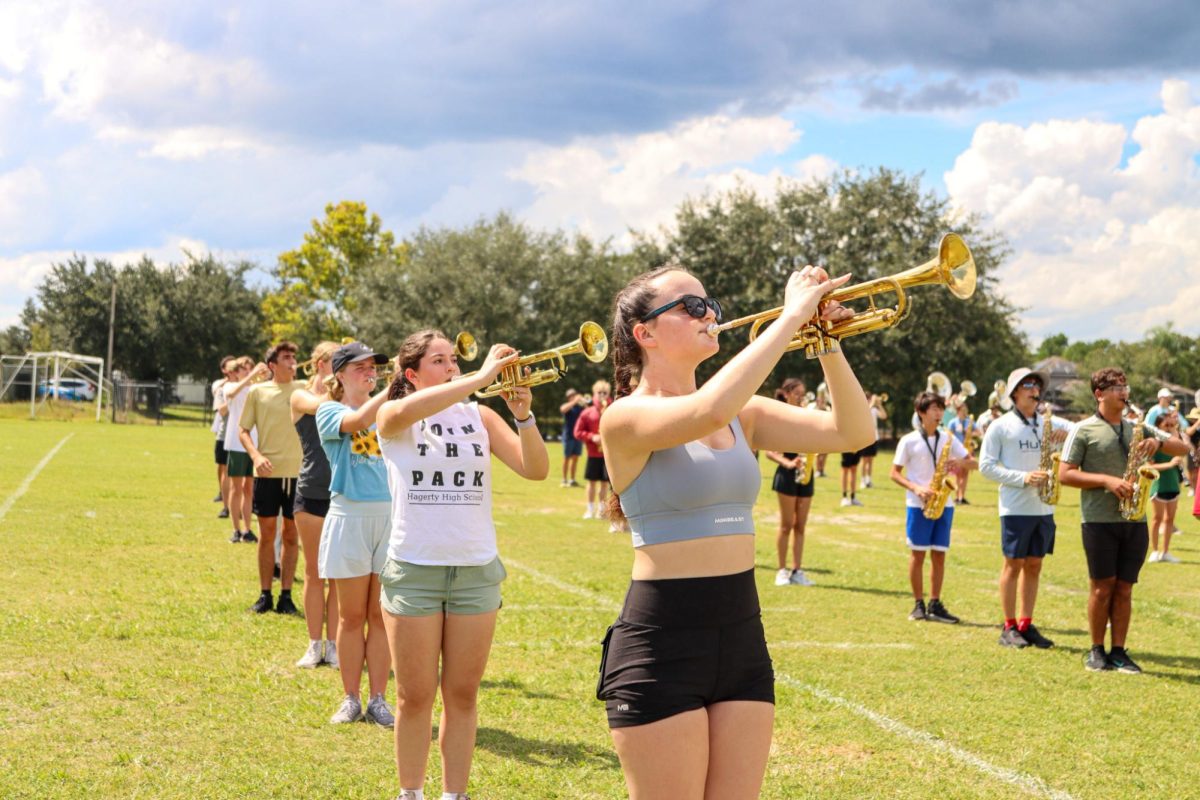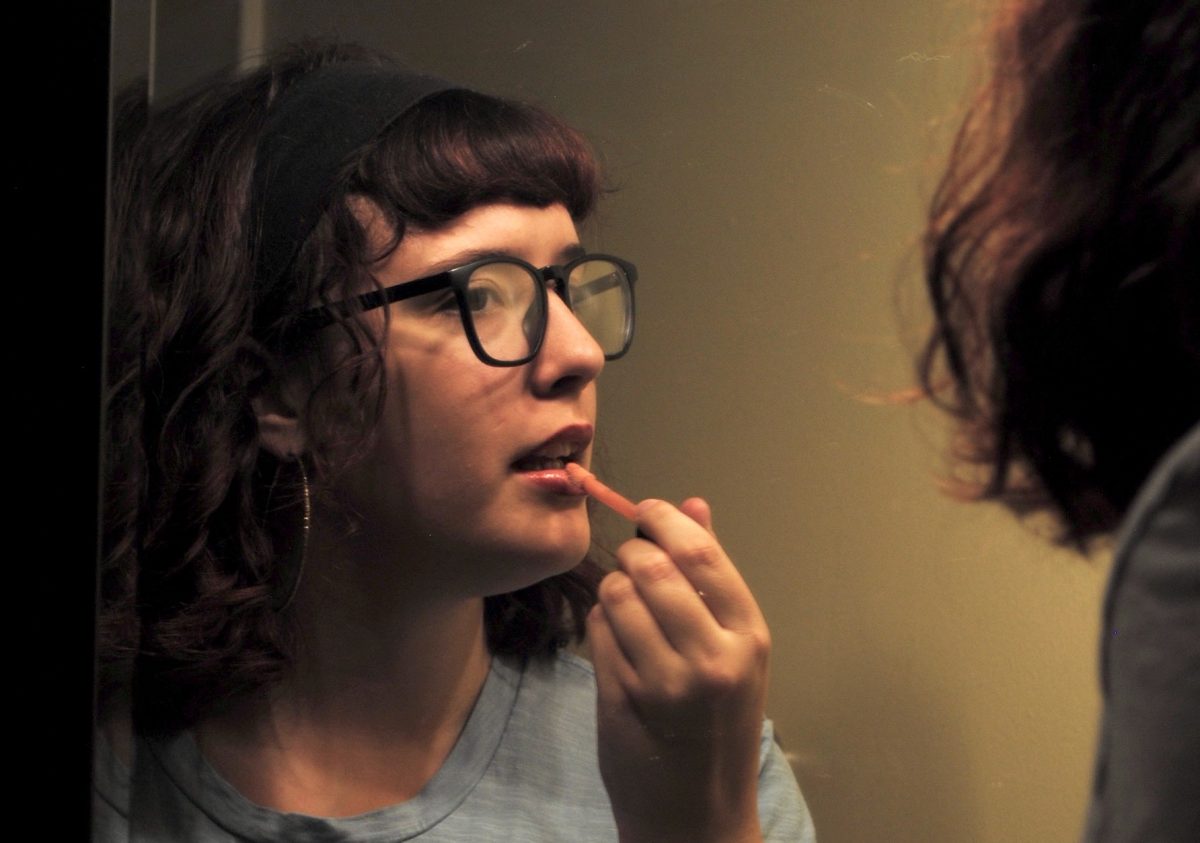All teachers have experienced students being distracted in class due to their phones. Certain subjects, such as math, require students to stay extremely focused.
“If you’re not paying attention, you can lose one little thing, miss it, and it might affect your grade on a quiz,” Geometry teacher Heidi Grasso said.
In 2023, Florida passed “Technology in K-12 public schools,” a law that prohibits phone use during class unless it is used for educational purposes. The law states that teachers should create an area for “wireless communication devices” during class time. Although the law was effective last school year, students, particularly underclassmen, have noticed teachers’ harsher enforcement of phone pockets.
For example, English teacher Virginia Bogert did not require her students to use phone pockets last year, but this year she has.
“I saw a lot of students, especially towards the end of the year, that were taking their phones out when they weren’t supposed to,” Bogert said.
When the law first came into place, some teachers, like history teacher Erin Foley, used it to their advantage and implemented the use of a phone basket. Before having the phone basket, her class would often be disrupted with student cell phone use.
“You have some repeat offenders that literally had to be reminded every single day,” Foley said.
Bogert, Grasso, and Foley’s classes tend to be filled with underclassmen. For upperclassmen, phone rules have been more lax as teachers expect students to be mature enough to keep their phones in their bags. Junior Kruthika Bharadwaj, along with some of her peers, has not seen a difference in the frequency of phone pocket use this year compared to last year.
“They believe we know when it’s appropriate to use our phones and when it’s time to focus on class,” junior Kruthika Bharadwaj said.
Underclassmen, however, have seen a drastic change in the amount of teachers who require their phones to be put in a phone pocket.
“All my teachers expect us to put our phones in our pockets,” sophomore Blajia Girges said.
Although students dislike putting their phones away, they find that class goes smoother without their phones, with the temptation to check a message or other notifications much weaker when phones are put away.
“I’m not having to redirect students,” Bogert said, “and there are fewer distractions, and students are completing their work.”
Teachers aren’t the only ones who think phone pockets are efficient for learning—students often see the results for themselves.
“I think putting our phones away helps us focus and more,” junior Yaritza Richemond said. “It creates a more productive learning environment.”
As with any issue, phone usage in the classroom has its pros and cons. While putting phones away may help class go smoother without distractions, but on the other hand, phones can also be used for good reasons, such as taking notes.
“It really depends on how each student uses their phone in class,” Bharadwaj said.

